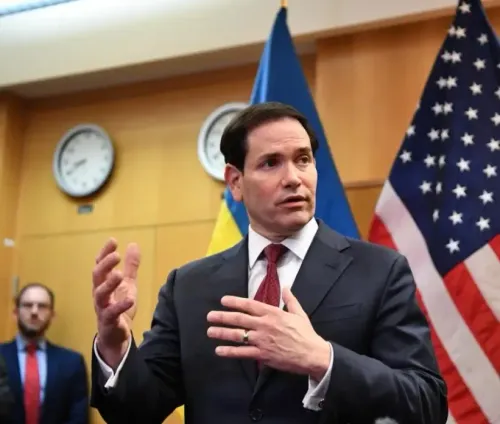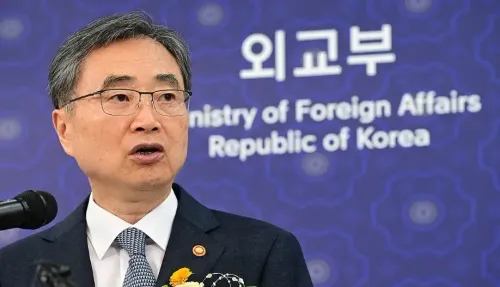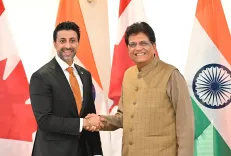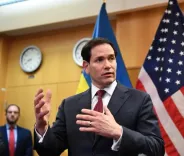Are the Global North's Sanctions and Tariffs a Sign of Reluctance Towards a Multipolar World?

Synopsis
Key Takeaways
- Criticism of Global North: Alipov condemns unilateral sanctions and trade wars.
- Strong India-Russia Bond: The partnership is built on trust and mutual benefits.
- Significance of BRICS: BRICS reflects the aspirations of the Global South.
- Independent Economic Mechanisms: Russia and India have established alternative payment and transport routes.
- Call for Global Governance Reforms: Alipov stresses the need for reforms to recognize the Global South's growing influence.
New Delhi, Oct 16 (NationPress) The Russian Ambassador to India, Denis Alipov, on Thursday expressed his disapproval of the so-called Global North for its attempts to sustain its dominance through neo-colonial tactics, unilateral sanctions, and trade conflicts, asserting that these actions merely reveal its failure to recognize the rise of a multipolar world order.
During the 25th India-Russia Strategic Partnership event, Alipov praised the longstanding relationship between India and Russia, characterizing it as an equal and mutually advantageous alliance founded on a robust basis of trust and respect.
He remarked that this bilateral partnership has served as a catalyst for global growth and demonstrates how the national interests of both nations are intricately linked.
"The relationship between India and Russia has consistently been equal, uninterrupted, and mutually beneficial, established on a solid foundation of trust and respect, qualities that ensure its upward trajectory is irreversible," he stated.
Alipov underscored that the two decades of India-Russia strategic partnership have illustrated how collaboration between the two countries has significantly contributed to global stability and advancement.
"This type of relationship is increasingly sought after globally as we collectively navigate a period of unprecedented geopolitical disruption," he noted.
Criticizing the Global North, he stated, "The efforts by the so-called Global North to enforce neo-colonial unilateral methods, including legal sanctions and tariffs, and to instigate conflicts and trade wars to retain dominance, only underscore its reluctance to embrace the emergence of a multipolar world."
He further articulated that such actions hinder long-overdue reforms in global governance and obstruct the acknowledgment of the rising influence of the Global South in shaping international economic and political dynamics.
"Such measures also impede necessary reforms in global governance and the acknowledgment of the increasing role of the Global South in shaping the international economic and political landscape. In this context, the significance of platforms like BRICS and the SCO, which foster pragmatic, depoliticized cooperation and assist in reducing external dependencies, is naturally increasing," he said.
The Russian envoy emphasized the growing significance of multilateral organizations like BRICS, noting that its expansion reflects the rising aspirations of developing countries.
"In recent years, BRICS has gained immense popularity across the Global South. With its membership doubling, it promotes comprehensive dialogue grounded in the universal principles of the UN Charter and international law—the only sustainable foundation for building trust, finding lasting solutions, and creating favorable conditions for shared prosperity," he added.
Discussing economic cooperation, he highlighted that Russia continues to be a key supplier of energy resources, fertilizers, and agricultural products to India, helping to mitigate risks in their economic partnership.
"We have established independent payment mechanisms using national currencies and created alternative connectivity routes—the International North-South Transport Corridor, the Vladivostok-Chennai corridor, and the Northern Sea Route," he said.
Alipov concluded by stating that the India-Russia partnership exemplifies a model of stable, balanced, and mutually respectful international cooperation—one that aligns with the aspirations of an increasingly multipolar and inclusive global order.










